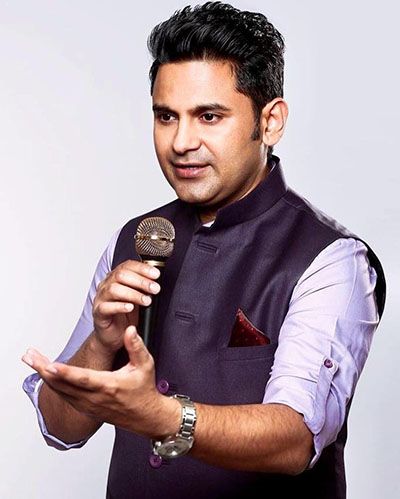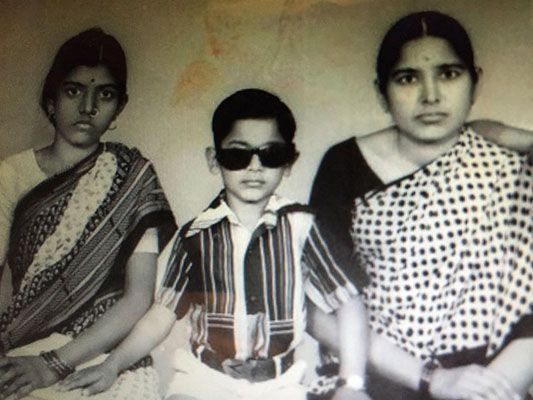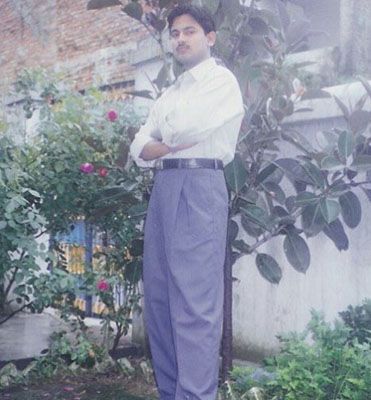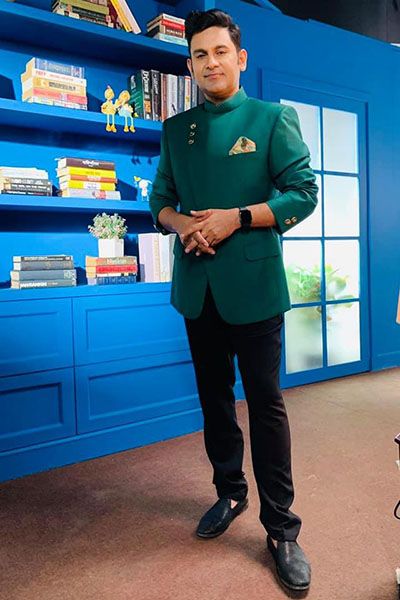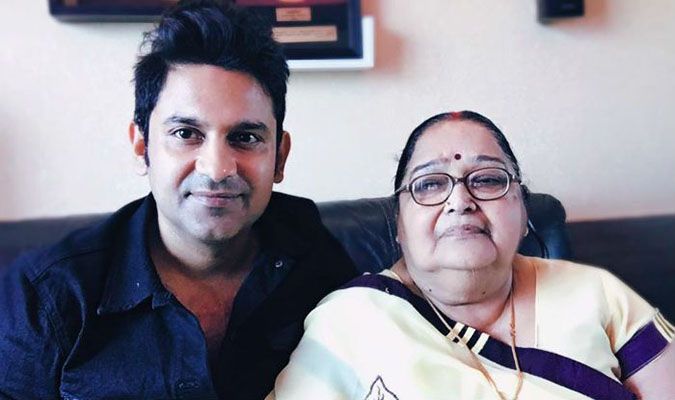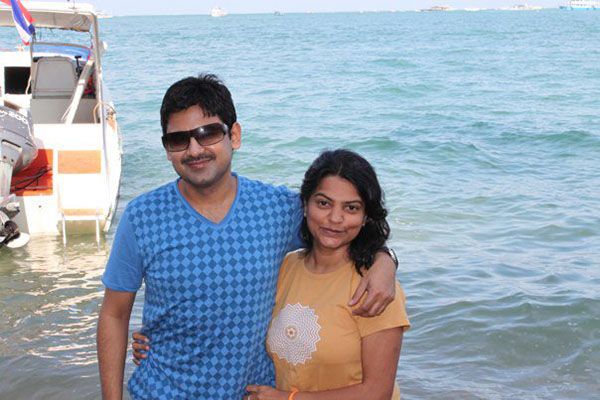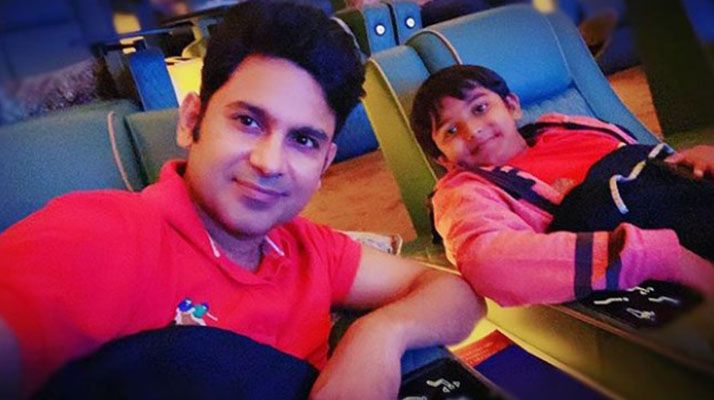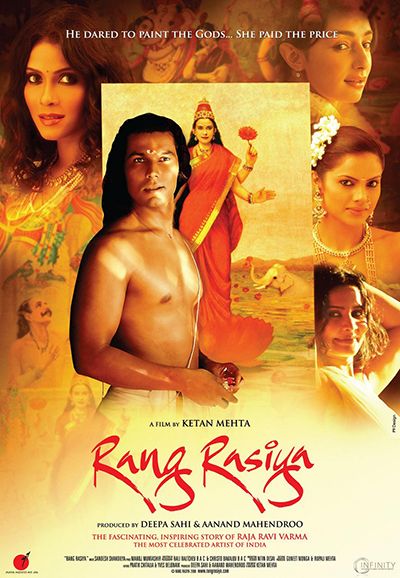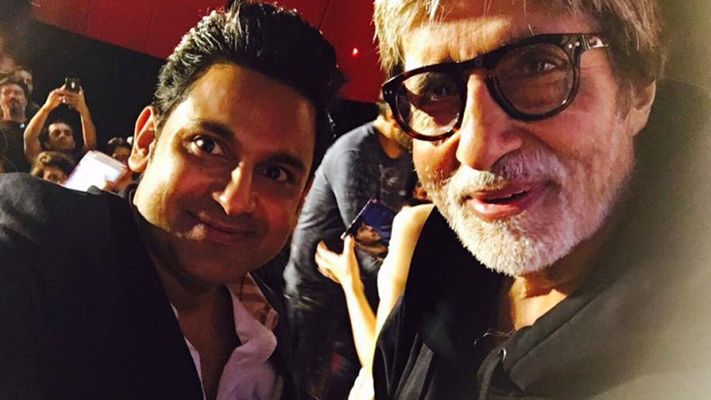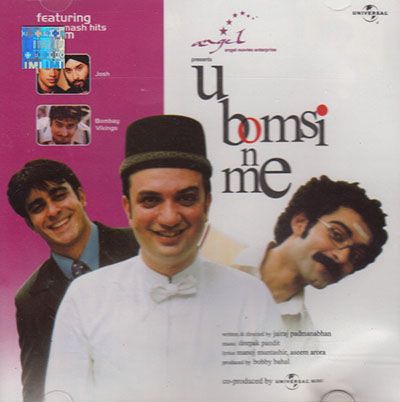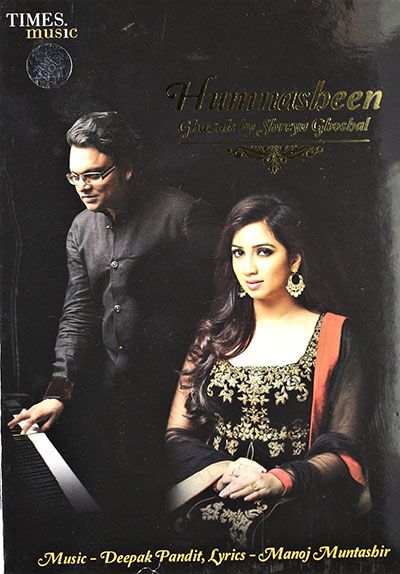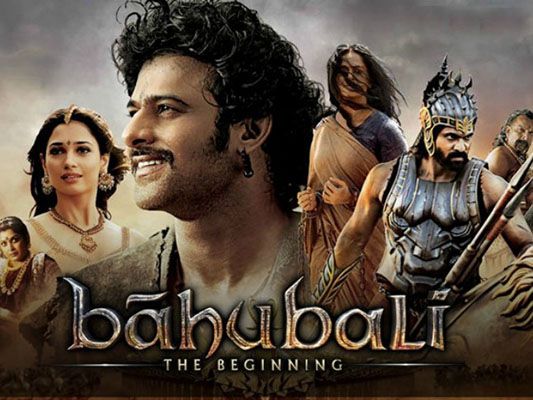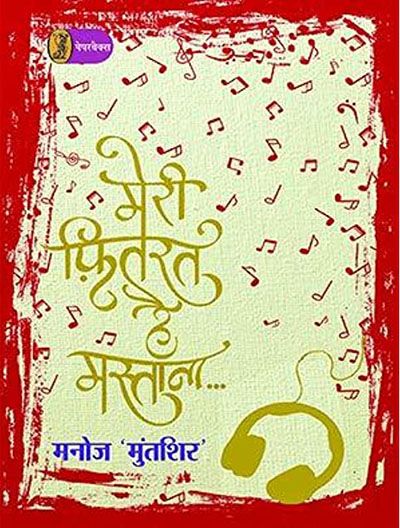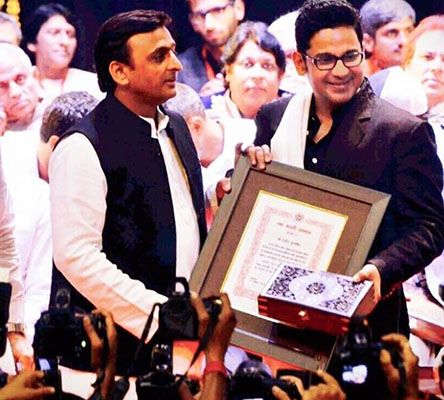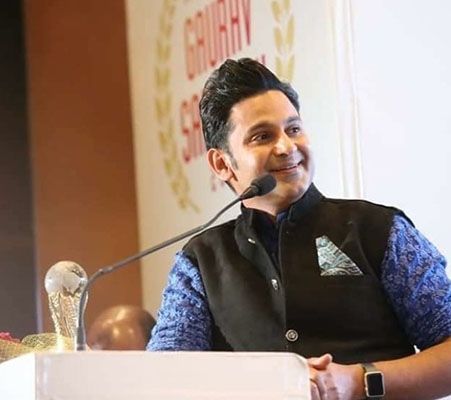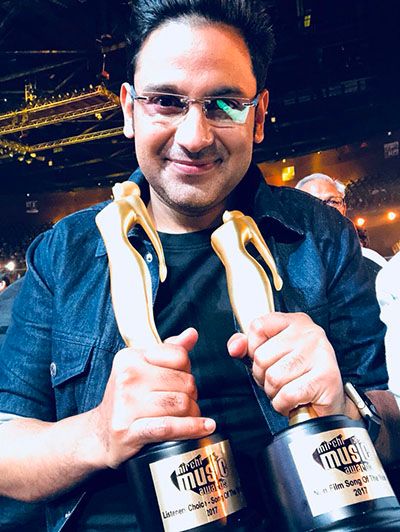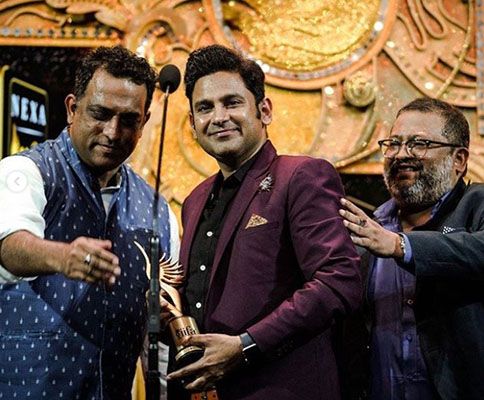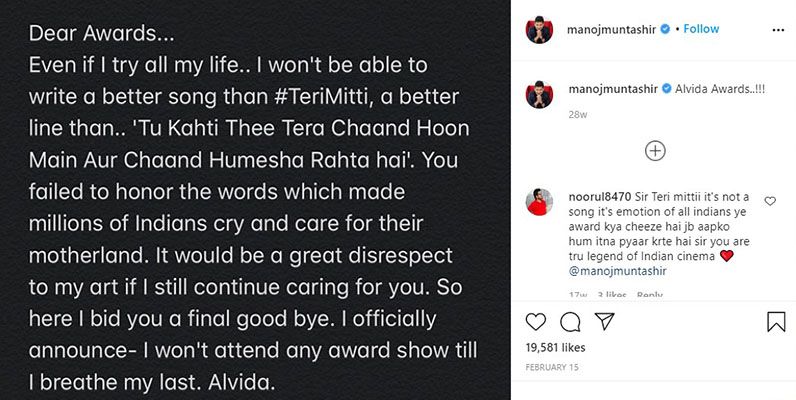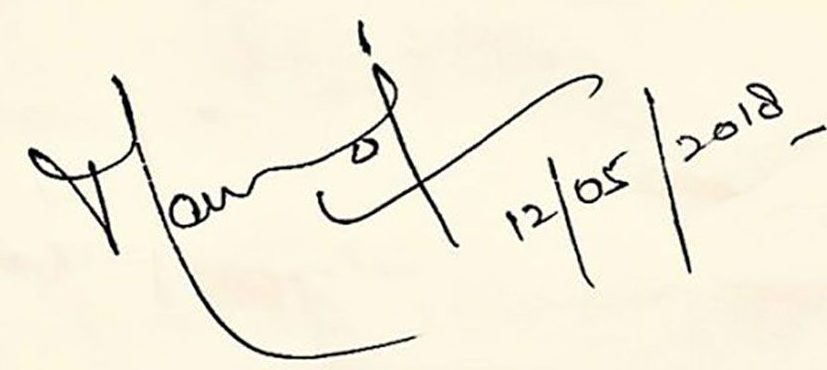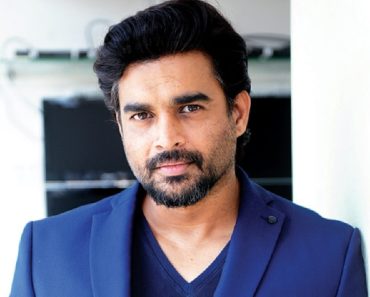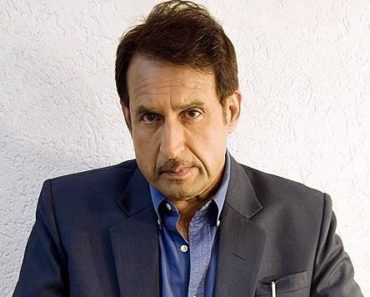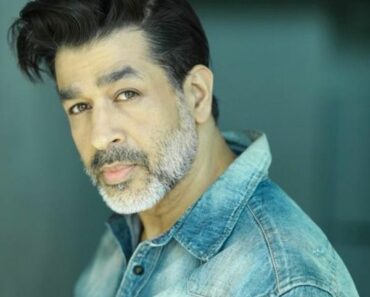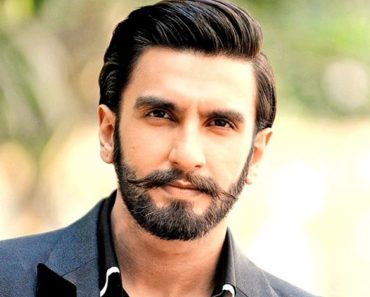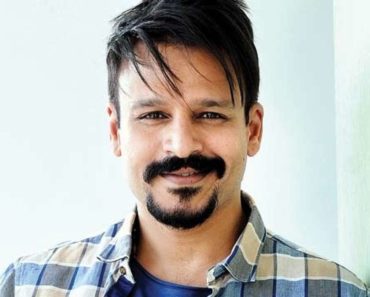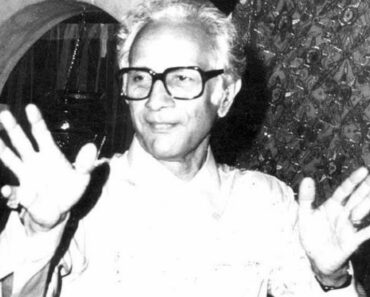Manoj Muntashir is an Indian lyricist, poet, and screenwriter. He has penned down the Bollywood songs such as Galliyan, Tere Sang Yaara, Kaun Tujhe, and Teri Mitti.
Contents
Wiki/Biography
Manoj Muntashir was born as ‘Manoj Shukla’ on Friday, 27 February 1976 (age 47 years; as of 2023) in Gauriganj, Amethi District, Uttar Pradesh. His zodiac sign is Pisces.
He attended a convent school in his town. He completed his schooling from the HAL School Korwa in Amethi in 1994. He graduated from Allahabad University with a bachelor’s degree in Science.
Physical Appearance
Height (approx.): 5′ 8″
Eye Colour: Black
Hair Colour: Black
Family & Ethnicity
He belongs to a Brahmin Family. [1]DNA India His father was a farmer and his mother was a teacher; he is the only child of his parents.
His wife, Neelam Muntashir, is a writer.
The couple has a son named Aaru.
Career
Early Career and Television
In his hometown, he started to write poetry during his school days. His friends took him to ‘Mushaira’ where he began reciting his poetry. After his graduation, he moved to Mumbai in search of work in 1999 with just Rs. 700 in his pocket. There, Manoj met the Indian singer and Musician Anup Jalota who asked him to write a Bhajan for him. Although he had never written any Bhajan before, he took the project because he needed money. After he wrote the Bhajan, Anup gave him a check of Rs. 3000, which was his first salary in Mumbai. In 2004, he was assigned to write the songs for the film ‘Rang Rasiya,’ but due to some problems, the film was released almost a decade later in 2014.
He entered the television industry through an opportunity given by Amitabh Bachchan to write for ‘Kaun Banega Crorepati,’ Indian TV series that airs on Sony TV based on the American reality show ‘Who Wants to Be a Millionaire?’ in 2005.
He has also written scripts for reality television shows: India’s Got Talent, Jhalak Dikhhla Jaa, and Indian Idol Junior.
In Films
He started his career as a lyricist with the film ‘U, Bomsi n Me’ (2005) in which he wrote four tracks.
He then worked for television. His work reached the people in 2014 when he wrote the lyrics for some songs of ‘Humnasheen,’ the first ghazal album of Shreya Ghoshal, which became a chartbuster.
He has written lyrics of the songs: ‘Galliyan’ from the film ‘Ek Villain’ (2014), all tracks of the Hindi version of the film ‘Baahubali: The Beginning’ (2015), all tracks of the film ‘Jai Gangaajal’ (2016), ‘Kuch To Hai’ from the film ‘Do Lafzon Ki Kahaani’ (2016), all tracks of the film ‘Rustom’ (2016), all tracks of the film ‘M.S. Dhoni: The Untold Story’ (2016), ‘Phir Bhi Tumk Chaahunga’ from the film ‘Half Girlfriend’ (2017), all tracks of the Hindi version of the film ‘Baahubali 2: The Conclusion’ (2017), all tracks from ‘Baadshaho’ (2017), ‘Dekhte Dekhte’ from ‘Batti Gul Meter Chalu’ (2018), ‘Dil Meri Na Sune’ from the film ‘Genius’ (2018), ‘Kaise Hua’ from the film ‘Kabir Singh’ (2019), and ‘Teri Mitti’ from the film ‘Kesari’ (2019).
He has also written the singles: Zindagi Aa Raha Hoon Main (2015) by Atif Aslam, Aa Bhi Ja Tu Kahin Se (2015) by Sonu Nigam, Maiya Teri Jai Jaikaar (2016) by Arijit Singh, Pyaar Manga Hai (2016) by Armaan Malik, Tumhe Dillagi (2016) by Rahat Fateh Ali Khan, Aap Se Mausiiquii (2016) (album ) by Himesh Reshammiya, Oh Humsafar by Tony Kakkar and Neha Kakkar, and Humnava Mere by Rocky-Shiv.
As a writer
He made his film debut as a scriptwriter with the film ‘Baahubali: The Beginning’ (2015); he wrote the dialogues for the Hindi version of the film.
He has also written the dialogues for the Hindi version of the films: Baahubali: The Conclusion (2017), Sye Raa Narasimha Reddy (2019), and Marvel’s Black Panther (2018). In 2018, he published his first book via Vani Prakashan titled ‘Meri Fitrat Hai Mastana…’.
Awards & Honours
- Zee Cine Awards – Jury’s Choice Award for Best Lyrics for the film ‘Kesari’ in 2020
- Yash Bharati Award by the Uttar Pradesh Government in 2016
- Uttar Pradesh Gaurav Samman for Best Lyricist in 2016
- Arab Indo Bollywood Awards for Best Lyrics for the song ‘Galliyan’ from the film ‘Ek Villain’ in 2015
- Indian Telly Awards for Best Script (Non-Fiction) for the show ‘India’s Got Talent’ in 2014
Mirchi Music Awards
- Listeners’ Choice Award for Best Song for ‘Phir Bhi Tumko Chaahunga’ from the film ‘Half Girlfriend’ in 2014
- Listeners’ Choice Album of the Year for the film ‘Ek Villain’ in 2015
- Listeners’ Choice Award for Album of the Year for the film ‘Kabir Singh’ in 2019
- Critics’ Award for Album of the Year for the film ‘Kesari’ in 2019
IIFA Awards
- Best Lyrics for the song ‘Galliyan’ from the film ‘Ek Villain’ in 2015
- Best Lyrics for the song ‘Tere Rashke Qamar’ from the film ‘Baadshaaho’ in 2015
The Indian Icon Film Awards
- Best Lyrics for the song ‘Galliyan’ from the film ‘Ek Villain’ in 2015
- Best Lyrics for the song ‘Tere Sang Yara’ from the film ‘Rustom’ in 2016
Hungama Surfers Choice Awards
- Best Lyrics for the song ‘Galliyan’ from the film ‘Ek Villain’ in 2015
- Best Song for ‘Galliyan’ from the film ”Ek Villain’ in 2015 (shared with Ankit Tiwari and Mithoon)
Controversy
Filmfare Awards row
In 2020, he lost Filmfare Award for Best Lyrics to ‘Apna Time Aayega’ from the film ‘Gully Boy’ (2019), which was nominated along with ‘Teri Mitti’ from the film ‘Kesari’ (2019). The loss made him upset on Indian award shows, and he decided to boycott the shows. In his social media post, he announced,
Dear Awards…Even if I try all my life.. I won’t be able to write a better song than #TeriMitti, a better line than.. ‘Tu Kahti Thee Tera Chaand Hoon Main Aur Chaand Humesha Rahta hai’. You failed to honor the words which made millions of Indians cry and care for their motherland. It would be a great disrespect to my art if I still continue caring for you. So here I bid you a final good bye. I officially announce- I won’t attend any award show till I breathe my last. Alvida.”
Controversial dialogues in Adipurush
In June 2023, after the Bollywood movie Adipurush was released, there was significant backlash on social media directed at him. He faced criticism for employing ordinary language in the film, and internet users mocked him for using controversial lines like ‘marega bete,’ ‘bua ka bagicha hai kya,’ and ‘jalegi tere baap ki.’ Due to perceived threats to his safety, he was granted security protection by the Mumbai Police on 19 June 2023. [2]Hindustan Times
Signature
Favourite Things
- Poet(s): Majrooh Sultanpuri, Sahir Ludhianvi, Mirza Ghalib
- Lyricist(s): Shailendra, Santosh Anand
- Poem(s): ‘Kabhi Kabhi Mere Dil Mein’ by Sahir Ludhianvi, ‘Parchhaiyan’ by Sahir Ludhianvi
- Music Composer: Khayyam
- Actor: Shah Rukh Khan
- Singer: Nusrat Fateh Ali Khan
- Dessert: Jalebi
- Film: Titanic (1997)
Facts/Trivia
- A book of Sahir Ludhianvi inspired him to take up his interest in writing poems as a profession. According to Manoj,
From childhood, I was registering the words most when I heard any film song, and soon Sahir Ludhianvi and Shailendra became my favourites”
- His mother was always fond of him. She used to say-
Honge bahot log duniya me, mere Manu jaisa koi nahi hai (There might be many people in the world, but there’s no one like her Manu)”
This used to embarrass Manoj as he believed himself to be an ordinary boy with no special skills.
- Around 1985, his father left his job and his mother took charge of the house and began teaching at a school on a monthly pay of Rs. 500. Her mother used to spend Rs. 300 in his tuitions and the remaining for household expenses.
- Manoj liked reading and writing since his childhood. When he was in middle school, he came across the book ‘Diwan-e-Ghalib’ of Mirza Ghalib. Because he did not know Urdu, it was difficult for him to read the book. He thought that he needed to know Urdu to write poetry; then, one day, he bought a book from a nearby mosque in Rs. 2; the book had Urdu translations in Hindi.
- His first work was not in Mumbai but in Allahabad (now Prayagraj) for All India Radio with a salary of Rs. 135 in 1997.
- Before coming to Mumbai, he changed his surname to ‘Muntashir,’ which means ‘a scattered soul.’ He took the name because no poet ever used that name and it was unique to him.
- The song ‘Galliyan’ was a Nazm written by him during a Kashmir Tour in 2001 when he was sitting on the banks of Dal Lake. Ankit Tiwari heard him reciting the Nazm at Hard Rock Cafe Andheri. Ankit passed the Nazm to Indian film director Mohit Suri, who decided to use it in the film ‘Ek Villain.’ Talking about it, Manoj said,
I told him, it’s a nazm, which is not music-friendly. Specially the kind of music we have today doesn’t allow this kind of awkward and lengthy metre. But Mohit (Suri) wouldn’t listen. I was very skeptical considering the format of the poetry. He worked for several days relentlessly with Mithoon to get it composed. I bow to down to the genius of Mithoon who composed it even without changing one word from the original. Mohit and I both had tears when we first heard the composition”
- Once in an interview, he revealed that he chose his profession over marriage. Telling the story, he said,
The first time around wedding cards had been printed and May 13, 1997, was the wedding date, which I still clearly remember. Around April end, the brother of the bride came to meet me and asked what my future plans were. I told him that brother, I will be a lyricist. He said, that’s okay, but what work will you do? I told him that I won’t lie, but I want to write songs for the rest of my life. We went back and called off the wedding. Of course, I loved the girl. But the choice was between writing and marriage, and I chose writing.”

